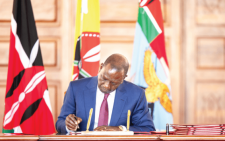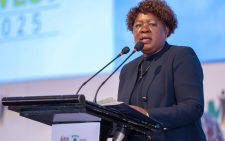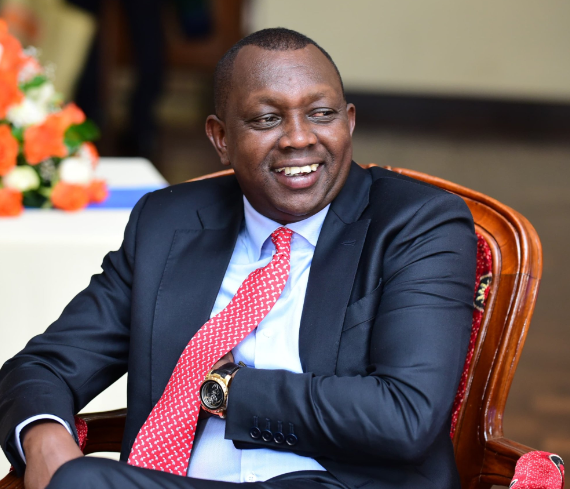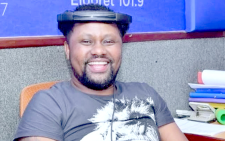Fitness and physiotherapy for optimal parenting

While most people view remedial muscle therapy as a preserve for athletes and the elderly, Susan Waceke shares how it helped her be in her best of health as a mum and started living a pain free life.
Njeri Maina @njerimainar
Parenting can be hard. It is a time consuming activity that can easily take over the parent’s schedule.
Many studies have shown that parents automatically delegate themselves to second place and rarely have time for themselves or for their wellness and self-care.
Susan Waceke shares how it was a steep learning curve for her to learn that she could take care of her wellness as it invariably put her mind and body in the perfect condition to take care of her baby.
“I have always had back pain ever since I was in my teens. I saw a battery of doctors who could not find what exactly was ailing me despite subjecting me to rigorous tests.
I was in pain, which made my pregnancy and childbirth quite difficult. I remember just how badly off my back was after the birth of my son such that it was hard to lift the newborn due to the excruciating pain.
I decided to go back to the gym after six weeks so that I could strengthen my core, which would help me be in better shape to lift my four kilogrammes baby,” Susan explains.
Pain and rehabilitation
Susan says that working out was the best decision she made. She would regain strength slowly, which enabled her be a better mother.
Though the pain never went away completely, making time to work out helped with the pain.
With the baby being born in 2017, she would start running in 2019. That is when the back pain completely flared up so she decided to seek the opinion of a physiotherapist that a friend recommended.
She explains that she had already seen several physiotherapists before, but they would all blame it on her weight and say that her back was aching since it could not support her weight.
“I will forever be grateful for Mark Kimemia, an occupational and remedial muscle therapist. I cried after he gave me the diagnosis.
My back was crooked. My left leg was facing outward towards the left and not forward as it should be at the hip socket.
So I had inflammation in my lower back, my sciatic nerve was under immense pressure and my upper back was inundated with spasms, hence the pain in my back, groin and right side of the body.
My right side was trying to compensate for my left hence the pain there. He told me that exercise had largely contributed to keeping me mobile so he started working with my gym coach to rehabilitate my body,” Susan emotively explains.
She shares how Kimemia would call her fitness coach, Coach Winnie and they would programme exercises for her together.
She would visit his clinic, The Healing Clinic, in Westlands for review every two weeks to start with and monthly when she improved.
He would use his hands, hot packs or equipment to soothe her muscles during visits as a way of ensuring that she was improving as well as operating on optimum levels.
Susan shares how she has started lifting heavy things over time. She has also slowly gone back to running and walking and recently did 115.6 kilometres in 34 days.
She still plans to keep going for remedial muscle therapy, especially after strenuous exercise as she believes our bodies need service just as cars do.
You cannot drive your car around for ages without service, so why exactly would you do that with your body, she queries.
But what exactly is remedial muscle therapy. “Remedial muscle therapy is a therapy technique aimed at reducing muscle tension either through muscle manipulation with hands, with a therapy gun, with hot packs or with any other equipment depending on the needs of a client.
We assess the client first then gauge the technique to use and the frequency to help with the rehabilitative need of the client.
Like for Susan, the frequency of visits has decreased as she has improved,” Kimemia, who has a decade plus of experience as a therapist and is the founder of The Healing Clinic shares.
The benefits
To the question of who should go for physiotherapy and remedial muscle therapy, his clear and lymphatic answer is everyone.
Everyone has tense muscles hence they can benefit from therapy as it reduces tension, helps with lymphatic drainage and increases mobility.
While it is a common misconception that athletes and old people are the only ones who regularly see muscle therapists, the truth is that therapy is a lifestyle for anyone interested in living optimally.
He shares how he has worked with various clients and how muscle therapy with someone with asthma can help ease constriction of nerves and help increase oxygen flow thereby alleviating asthmatic symptoms.
Similarly, children injured on the playground may need therapy to rehabilitate broken and stiff joints.
Someone who has suffered a stroke may need rehabilitative care to relearn motor skills and increase independence. Young mothers may need it as there is so much compression that happens on the lower back as you push.
“Physiotherapy and remedial muscle therapy should be part and parcel of someone’s life as they help you live a more optimal life.
It helps with the wear and tear that the body invariably goes through over time. So, it is both for rehabilitation when there is pain and for management when there is no pain, but you are interested in maintenance,” Kimemia says in conclusion.















